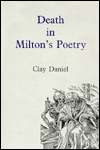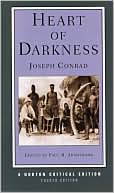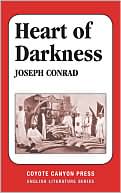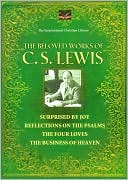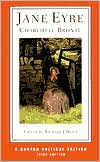Death in Milton's Poetry
From his earliest verses (the Latin verses written at Cambridge) to his first original English poem (the Infant ode), to his masterpiece (Lycidas) and its sad echo (Epitaphium Damonis), through his mature trilogy (Paradise Lost, Paradise Regained, and Samson Agonistes), Milton repeatedly seeks to explain why people die. Though Milton frequently changed his mind on important subjects, his fundamental view of death did not change. Milton throughout his life insists that death, both physical and...
Search in google:
From his earliest verses (the Latin verses written at Cambridge) to his first original English poem (the Infant ode), to his masterpiece (Lycidas) and its sad echo (Epitaphium Damonis), through his mature trilogy (Paradise Lost, Paradise Regained, and Samson Agonistes), Milton repeatedly seeks to explain why people die. Though Milton frequently changed his mind on important subjects, his fundamental view of death did not change. Milton throughout his life insists that death, both physical and spiritual, is caused by sin. In attempting to understand the significance of this belief, Death in Milton's Poetry will suggest some major re-evaluations of old assumptions. This book is divided into two parts. The first part contains examples of death that support Milton's belief that death is caused by sin. The second part contains poems that focus on deaths that appear to violate this belief. Since Milton illustrates his belief in his mature works, Part 1 includes Paradise Lost, Paradise Regained, and Samson Agonistes. As the pattern of death emerges in these poems, the reader is able to see that Paradise Regained is as much about the death of Satan as it is about the life of Jesus and that Milton's drama focuses on an unregenerate Samson whose tragedy is his inability ever to reconcile with God. The poems examined in Part 2 explain deaths that appear to violate Milton's, belief. In vindicating Milton's view of death, the Latin funeral elegies and "On the Death of a Fair Infant Dying of a Cough" form a pattern that culminates in Lycidas. Recognizing this pattern in Lycidas is indispensible to understanding the radical statement of Epitaphium Damonis, a poem that records Milton's temporary disillusionment with Christianity. In addition to new insights into the individual poems, two patterns are highlighted. In Milton's earlier poems, readers usually have seen classicism as complementing Christianity. When Milton turns to death, however, he opposes classicism to Christian
Preface7Acknowledgments11Pt. 1The Later Poems: Milton's Paradigm of Death1Introduction172Sex and Death in Paradise Lost263Paradise Regained and the Death of Satan494Sex and Violence in Samson Agonistes72Pt. 2The Early Poems: Anomalies of Death5Milton's Early Poems on Death916Providence and Death in Lycidas1087Lust and Death in the Early Poems on Death1248The Crisis of Epitaphium Damonis135Afterword158Notes160Bibliography174Index181
